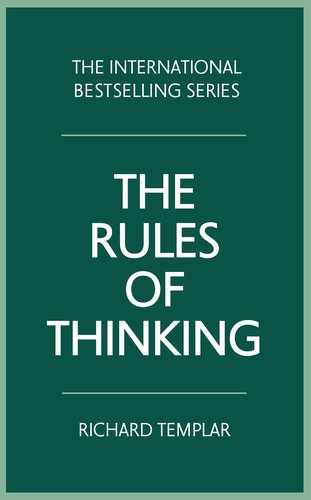There’s a strong correlation between resilience and self-esteem. If you like yourself, you’ll cope better with adversity than if you don’t. So everything that you can do to build your self-esteem now will make you more resilient when trouble strikes.
Self-esteem is about how much worth you believe you have as a person. It’s not the same thing as confidence – which is more to do with the skills and abilities you feel you have. This is about the big stuff, about whether you believe you have intrinsic value.
If your self-esteem is low, you will focus on those qualities in yourself that you believe are negative: ‘I’m a rubbish friend’, ‘I’m always getting things wrong’, ‘I’m stupid, boring, useless … ’ If you tell yourself, ‘I’m always selfish’, that’s a clear sign your self-esteem is low. If any of these opinions of yourself are things you were told as a child, the low self-esteem will be even more entrenched.
Look, I can’t raise your self-esteem in a couple of pages of text. I wish I could. You’ll notice however that it is called self-esteem for a reason. It’s no kind of measure of your actual worth, it’s just the way you see it. So only you can change it.
We’re talking about a spectrum here. Your self-esteem may be up towards the higher end, which is great (you wouldn’t want it too high, which is where you find afflictions such as narcissism). But within reason, any improvement will improve your resilience too. If your self-esteem is low, please believe me that it’s not a true reflection of your value as a human being, and seek out ways to help yourself match your perception more accurately to the truth.
So change the way you think. Stop comparing yourself with other people, or with some kind of image in your head of what you ‘should’ be like. You ‘should’ be you. So don’t focus on the standards you think you can’t meet. Instead look for the positive. At least once a day, consciously remember all the positive things you’ve done, whether large or small. All the times you’ve been kind, all the goals you’ve achieved. Deny headspace to any negative thoughts. So if you walked four miles, tell yourself, ‘I walked four miles!’ Do not even think about how many more miles you didn’t walk. Four is good.
Don’t look at what someone else can do and berate yourself for not doing it too. If it’s important, resolve to work towards it (at your own speed, not anyone else’s). If it’s not, who cares what they can do? Bet they can’t cook as well as you, or play football, or organise stuff, or fix a puncture, or comfort a crying child. There’s a whole picture here. If we compared each thing we could do with one person who could do it brilliantly, we’d all have a worryingly low sense of self-worth. But everyone has their own mix and none of us can do everything.
Finally, surround yourself with people who will reinforce your positive thoughts and avoid anyone who is inclined to tell you you’re not good enough. Their opinion probably isn’t true and it certainly isn’t helpful.
IT’S NO KIND OF MEASURE OF YOUR ACTUAL WORTH, IT’S JUST THE WAY YOU SEE IT
